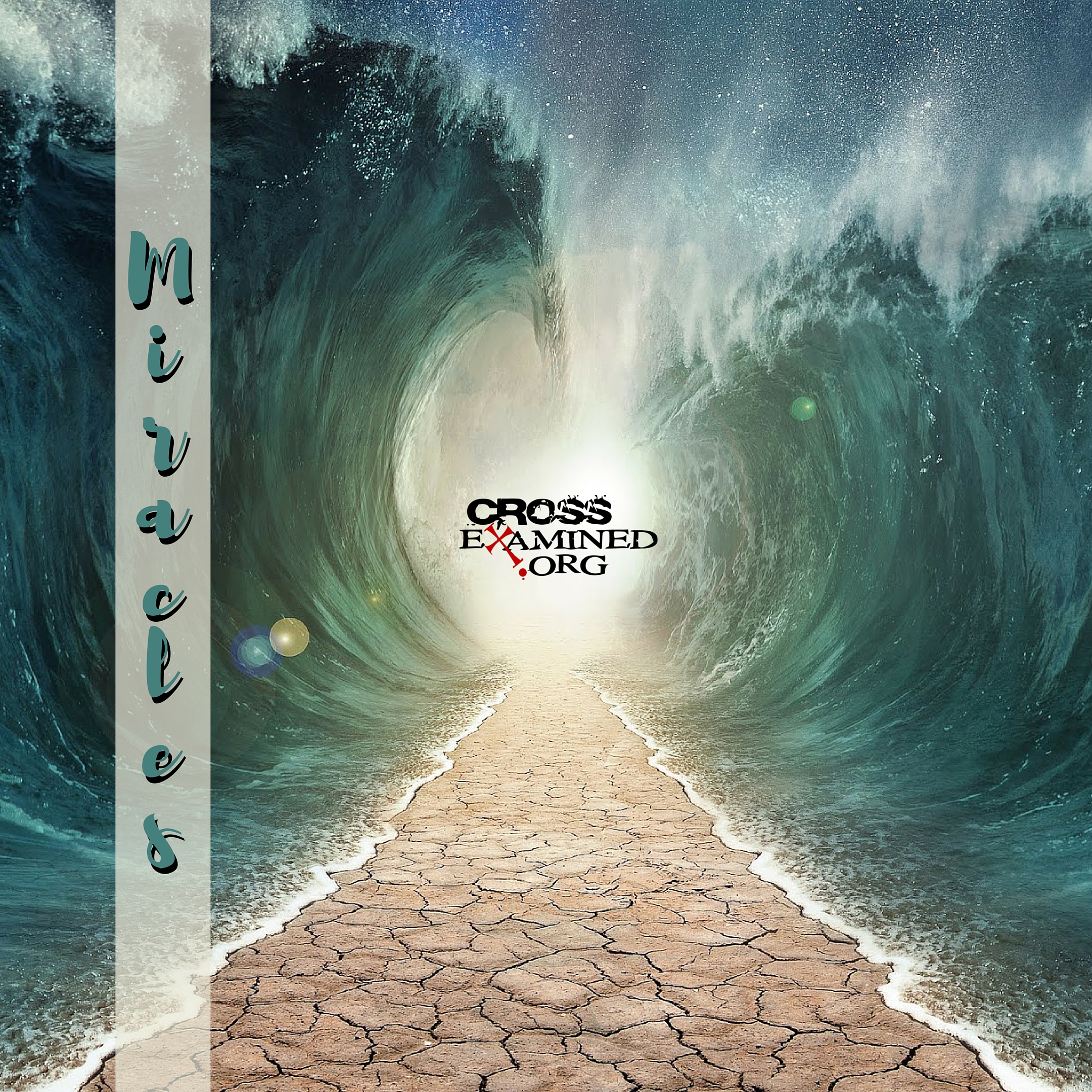By Tim Stratton
“Then they devoted all in the city to destruction, both men and women, young and old, oxen, sheep, and donkeys, with the edge of the sword” (Joshua 6:21).
Why would God command the execution of all the Canaanites (along with the children) in the Old Testament? Many think this is one of the biggest objections to Christianity; however, when thinking logically, we can see that this is not an objection to Christian theism at all. We must recognize the real objection; at most, this is only an objection to Biblical inerrancy, as the “Canaanite objection” does absolutely nothing to disprove the existence of God or the resurrection of Jesus. These two things must be invalidated before “Mere Christianity” (as C.S. Lewis put it) is discredited.
With that said, however, is this even a good objection against Biblical inerrancy? I think not. Why? Perhaps God had perfectly good reasons for issuing these “divine commands” (if He really issued them at all).
A quick study of the Canaanite tribes reveals a totally wicked culture, that if existed today, the world would decry. The Canaanites would brutally torture and sacrifice their babies to idols by slowly burning them alive (this sounds worse than ISIS Muslims today)! Eric Lyons noted the following:
Their “cultic practice was barbarous and thoroughly licentious” (Unger, 1954, p. 175). Their “deities…had no moral character whatever,” which “must have brought out the worst traits in their devotees and entailed many of the most demoralizing practices of the time,” including sensuous nudity, orgiastic nature-worship, snake worship, and even child sacrifice (Unger, p. 175; cf. Albright, 1940, p. 214). As Moses wrote, the inhabitants of Canaan would “burn even their sons and daughters in the fire to their gods” (Deuteronomy 12:30). The Canaanite nations were anything but “innocent.” In truth, “[t]hese Canaanite cults were utterly immoral, decadent, and corrupt, dangerously contaminating and thoroughly justifying the divine command to destroy their devotees” (Unger, 1988). They were so nefarious that God said they defiled the land and the land could stomach them no longer—“the land vomited out its inhabitants” (Leviticus 18:25).
These tribes inhabited the land that God gave to the Israelites. Therefore, not only were the Canaanites suffering God’s judgment for their wicked ways, the land was also restored to Israel. These tribes were to be utterly demolished as nation states! The Canaanites were ripe for God’s judgment, and justice would be served via the Israelites.
Here is what many skeptics miss: The Canaanites, seeing the advancing armies of Israel could have chosen to “get the heck out of Dodge,” and no one would have been killed! To underscore this point, we see no Bible verse in which God commands pursuing the Canaanites, or “hunting them down to the ends of the earth.”
Utterly Destroy?
Moreover, the Israelites did not literally “utterly destroy” all the Canaanites! Only the Canaanites who chose to stay and fight the Israelites were to be killed. In fact, it is quite possible that there were no Canaanite women or children killed at all. The Bible makes zero references to the actualkilling of Canaanite non-combatants, which supports the notion that it was only the Canaanite soldiers, who stayed to fight the Israelite armies, who were exterminated.
Speaking of Biblical affirmation, the Bible reports that Canaanite people were still alive after the conquest of the land in question:
“Thus Joshua struck all the land, the hill country and the Negev and the lowland and the slopes and all their kings. He left no survivor, but he utterly destroyed all who breathed, just as the LORD, the God of Israel, had commanded… Thus Joshua took all that land: the hill country and all the Negev, all that land of Goshen, the lowland, the Arabah, the hill country of Israel and its lowland” (Joshua 10:40; 11:16).
Joshua reports that God commanded “utter destruction,” and that he had followed that command “to the T” (Joshua 11:12, 15, 20); however, if we read the text further, we find that Joshua did not take all of the land (Joshua 13:1-5), and that many of the people who were supposedly either annihilated or removed from the land were, in fact, still living there (Joshua 13:13). The author is clear that the people of Anakim had been “utterly destroyed,” (Joshua 11:21-22); however, if we continue reading, we find Caleb asking for permission to drive out the people of Anakim (Joshua 14:12-15; 15:13-19).
Moreover, the book of Judges records that “the Canaanites persisted in living in that land” (Judg. 1:21) and “they did not drive [the Canaanites] out completely” (Judg. 1:28). This gives us good reason to conclude that modern readers might be making a hermeneutical error in trying to read ancient text through modern lenses. This is corroborated by the words of Moses regarding a future generation of Israelites, He says Israel “will be utterly destroyed” (Deut. 4:26). Now, the nation of Israel has experienced some great defeats in the past; however, the nation of Israel has not been “utterly destroyed” at all. In fact, the nation of Israel thrives today.
After considering all of the text and seeing that the Canaanites continued to survive, this either proves the Israelites disobeyed this supposed “command of genocide,” or this was likely figurative language not to be taken literally (i.e., I hope the Huskers KILL and wipe out the badgers and wolverines next year on the field), or, it proves my point – this battle was not about people; it was about taking control of the land.
What Does Evil Prove?
Another problem the skeptic has when referencing the Canaanite Objection as evidence against God, is that it actually proves the existence of God! That is to say, if an atheist thinks the “Canaanite problem” is a good refutation of theism, they are actually refuting atheism. If they claim that the Israelites actions were really wrong (objectively), they are inadvertently providing evidence that God exists! Examine the Moral Argument:
1- If God does not exist, objective moral values and duties do not exist.
2- Objective moral values and duties do exist
3- Therefore, God exists.
If atheists object to the “Canaanite problem” and proclaim it was objectively wrong to drive the Canaanites from the land, they are offering evidence supporting premise (2) of the Moral Argument. Therefore, God exists! If they do not think it was really wrong, then they have no grounds to complain.
To Whom is God Accountable?
On the other hand, and for the sake of argument, what if the Bible is supposed to be taken literally in this passage in question and God did actually command the Israelites to kill all Canaanites? Would God be guilty of sin? This raises several questions. For instance: is it objectively wrong for God to issue commands to us, that we are obligated to follow, but that He is not?[1] Moreover, is it objectively wrong for God to issue a law that we ought to follow, and then, tell us to do something different in a specific situation?
When we stop to intellectually consider this (as opposed to emotionally) things become clear. For example, I live in the great state of Nebraska (Go Big Red!), and the lawmakers that govern this state have issued the command: “Thou shall not drive over 75 mph on the interstate!” Now, I have to be honest, I do not like this command (I wish the speed limit were at least 90 mph); however, I am obligated to drive according to the laws of the State of Nebraska, independent of whether I agree with them or not. If I do not drive according to these laws (which are issued to help Nebraskans flourish), I will suffer consequences that the lawmaking minds of Nebraska have issued as well.
The same lawmakers have the ability to issue commands to certain individuals in extreme circumstances. For instance, the Nebraska State Patrol is allowed to drive much faster than the speed limit, when they are in pursuit of those who have broken the law. Moreover, thankfully, those who drive ambulances and fire engines can drive much faster than the speed limit if they need to. Are Nebraska’s lawmakers morally wrong or evil for issuing different commands to different people in extreme situations? Not at all! In fact, I think they would be wrong to tell State Troopers that if they were chasing bad guys who were driving 100 mph, that they still had to drive 75 mph while in pursuit. It would be wrong and just plain silly.
When thinking this through, did God really do something wrong if He issued such commands to the Israelites to annihilate the Canaanites? God has the right (as the Ultimate Lawgiver) to give commands to certain individuals in extreme situations. We see this all the time in our government today.
I would ask those who think the supposed “Canaanite objection” is a problem for Christians, to please explain to me exactly who God sinned against if He did indeed issue these commands to the Israelites? If things are objectively wrong, they are wrong in reference to a higher standard. So, if God really did issue commands to kill people, what higher standard did God sin against? Is God accountable to someone? If this question is not answered, the objection has no teeth in its bite and does not make logical sense.
God’s Middle Knowledge
God, by definition, is omniscient. This means He knows the truth-value to any and all propositions. This includes counter-factual truths in the subjunctive mood and this means God possesses what theologians and philosophers refer to as “middle knowledge.” God is the standard of logic and rationality, and he is perfectly intelligent. Given this property, God makes the most intelligent decision in every scenario and situation. This means that God would know what would happen, if he did not issue the commands to destroy the Canaanites. Perhaps God knew that if they were not driven from the land and destroyed, Israel would not have become a nation, and Jesus would not have been born to save the world.
Moreover, God would have known how wicked the Canaanites were, and known with absolute certainty that none of them would have worshipped him, if given the opportunity. We could conduct thought experiment after thought experiment regarding an omniscient being (who would know the truth-value to counter-factual propositions) that would lead to Him knowing that issuing the commands to the Israelites to drive the wicked Canaanites from their land, and even kill them, would be the best thing to do in that specific situation.
Finite humans, who are not perfectly intelligent, are simply not in a position to know if the omniscient, divine command from God is the best decision or not because we have no idea what counter factual would have happened, if God did not issue these commands. An omniscient God, however, would be in such an epistemic position to know these things with perfect certainty and issue commands accordingly.
How We Know
According to Divine Command Morality, if God commands us to take the life of another, it would not be wrong. In the absence of this command, it is objectively wrong to murder other humans. How do we know this? God has revealed this to us through His commands and the Law of Christ — to love everyone from our neighbors (Mark 12:31) to our enemies (Matthew 5:44). This law and these commands have been historically validated via the resurrection of Jesus, as it is God’s seal of approval of everything Jesus said, taught, and exemplified.
God does not order Himself to do things. He acts in accords with his omniscient nature. He is what the laws of logic are grounded in (“The Logos”)and He is perfectly intelligent. A statement is true when it corresponds to reality. God is the ultimate standard of reality, as He exists necessarily and eternally with no beginning, and all other things are contingent upon God and depend upon Him for their existence (Colossians 1:15-20). Therefore, God is the ground of logic, the standard of truth, and we depend on Him for our existence. As William Lane Craig points out, “We ought to depend on the one who depends on no one.” That gives Him the right to tell us how to live, and to tell us what to do, even if we do not subjectively appreciate the commands (just like I don’t like the speed limit)!
It is important to remember that God is not obligated by his nature to extend human life. God is the author, giver, inventor, and creator of life. It is His to decide how we ought to live, and He has the right to issue commands that He knows are best (even if they don’t always make sense to us). God gives us life and He has the right to take it when He chooses and by whatever means He chooses. Be that as it may, some continue to object and claim that if God did command the Israelites to kill the Canaanite children, that it would have been objectively wrong for God to issue such commands no matter what. Is this really the case? My former professor, Dr. Clay Jones (who does not think these passages are hyperbole), made the following comments on the issue:
“One of the key issues that we need to point out regarding the killing of Canaanite children is that it isn’t always wrong to kill the innocent. Copan makes this point in his book (“Is God a Moral Monster?“) and uses the potential shooting down of Flight 93 as an example. . . . Also, God is every bit as just for allowing a child to be taken quickly by the sword as He is for allowing them to be taken slowly by cancer. Further, if God knew that these children, when they grew up, would commit similar sins, then He does no wrong by taking their lives early.”[2]
After contemplating these comments from Clay Jones, consider the atomic bombs the U.S. dropped on Japan to win WWII. We killed many innocent Japanese civilians, although millions of lives were saved in the process! With historical examples like these in mind, it is clear that sometimes — in extremely rare circumstances — it is actually good, and the right thing to do, for leaders to issue commands that will have collateral damage and take innocent life.
Conclusion
This essay provides several logical arguments against the “Canaanite objection.” I have answered this objection based on logic and critical thinking. One may have an emotional revulsion against these answers, but an emotional revulsion is not an intellectual objection and it does not logically lead to the conclusion that atheism is true, or that Christianity is false. The supposed “problems” of God committing genocide in the Old Testament are not insurmountable problems by any means, and ultimately, not a good reason to reject Christianity. In summary, remember theseTEN key points:
1- Objections like these do not refute Christian theism; this objection is simply an argument against Biblical inerrancy (a non-essential doctrine) nothing more.[3]
2- The Canaanites were wicked (on par with ISIS) and ripe for judgment.
3- The battle was primarily about the land as there was no command to “hunt the Canaanites down to the ends of the earth.”
4- The Bible is clear that all of the Canaanites were not executed.
5- These commands could well have been figurative speech (i.e., “our football team is going to kill your team!”)[4]
6- Objections like these support premise (2) of the moral argument for God’s existence (Therefore, God exists).
7- Lawmakers have the ability to issue different commands to certain individuals in extreme circumstances.
8- If God really did issue these commands to kill people, whom did God sin against? Who is He accountable to?
9- Given God’s property of omniscience and perfect intelligence, God makes the best decision in every scenario and situation. God would know what would happen if He did not issue the commands to destroy the Canaanites.
10- Flight 93 and WWII atomic bomb examples demonstrate that it is not always wrong to issue commands where innocent lives are taken.
Stay reasonable (Philippians 4:5),
Tim Stratton
NOTES
*Please read this related article from my colleague, Shannon Eugene Byrd, shining additional light on the subject of the Canaanite Objection.
[1] I call this the “Bedtime Fallacy,” as this is equivalent to saying parents are wrong to command their children to go to bed at 9 PM, but they retain the right to stay up past midnight.
[2] Clay Jones was my professor in my “God & Evil class” and I wrote a paper on the Canaanite Objection. Dr. Jones wrote this to me in response to my paper.
[3] Read more regarding this topic in my article, “An Ignorant Objection to the Moral Argument.”
[4] Trevor Ray Slone personally informed me that God’s curse on Canaan (Noah’s grandson) in Genesis 9:25-27 gives further credence to the view that God did not intend to “utterly destroy” all of Canaan’s decedents (the Canaanites). God, in that curse, repeatedly indicates that Canaan’s decedents would be servants of God’s people. It is therefore logically impossible for God to decree that all of the Canaanites be destroyed, for how could they be servants if they were “utterly destroyed?”










